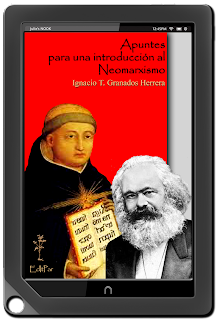The neo-scholasticism of Bernardo Kastrup
That stage would be the one that is
interesting, but not determined by that neo-idealist scholastic of Kastrup; but
by that of Realism, subsumed in the Middle Ages by the idealist journey, which
goes from St. Augustine to Hegel. Kastrup's neo-idealism cannot participate in
this emergence, although that is what he intends with his aggiornamento;
because he anchors himself in that apotheosis of Idealism, which is Hegel on
the edge of Modernity, trying to extend it; just as Maritain's neorealism was
the protest —beautiful and useless in its pathos— against this idealist
apotheosis.
Namely, the new scholasticism —promoted by
Kastrup— undoes the hermeneutical spectrum of Catholicism; which from the
outset is not interested in defending, weakening it already in this
indifference, which highlights the free nature of its presuppositions. This is
paradoxical, starting from the hermeneutical sufficiency of the idealist
tradition, developed from Kant to Hegel; since this sufficiency comes from the
logical presuppositions of Christianity, given as necessary since St.
Augustine.
No matter how contradictory this may seem, it
is what explains the substantialism of Thomistic Realism; in the inviolability
of doctrine —not in philosophical excellence— fixed by St. Augustine in sealing
the Patristics. That is why Scholasticism is not a universal and free
development, but within the marked limits of doctrine; and that they will be
maintained —even as the problem of God— throughout the idealist tradition, with
that apotheosis from Kant to Hegel.
In fact, the problem of Idealism would still
be in this Augustinian origin, which draws its logical basis from Neoplatonism;
skipping the Aristotelian correction, in the objective substantialism of
Plotinus, with that excess with which the Patristics concludes. This explains
why the very nature of Kastrup's neo-idealism is defensive in criticism, like
that neorealism of Maritain; also that his effort is useless in its pathos,
like that other, typical of formal logic rather than of a real need.
His critique of Realism then suffers from the
same excess as in Feuerbach and Marx, reducing it to matter; so it even resulted
in a false realism, since it did not manage to establish its singular ontology.
In effect, Feuerbach's critique of Hegel's absolutism depended on the same Hegel’s
ontological presuppositions; established since Kant —on the basis of Descartes
to Spinoza—, as belonging to that tradition that he criticized.
The singularity of this emergence and
originality of Realism is precisely its epistemological independence; allowing an
effective adaptation of traditional ontology, but from Hegelian objectivism;
which is not what Kastrup anchors himself in, but in its transcendentalism, as
precisely the presupposition that Hegel tries to overcome. Hegel does not
succeed, because of that epistemic burden of his tradition, in that need for
God that complicates it; but whose obsolescence is not enough to liberate the
system, since it is this what is determined by its centrality.













